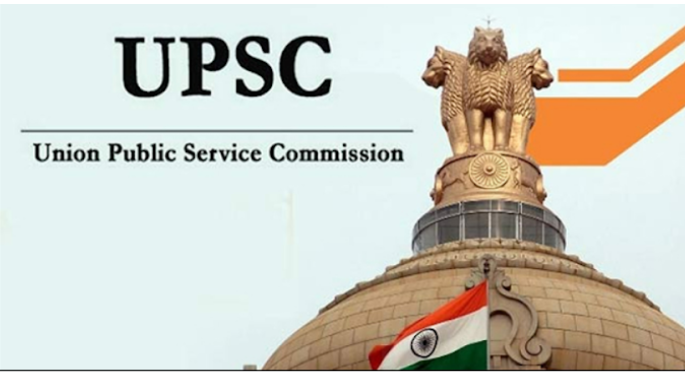In India, the central Public Service Commission (PSC) is the Union Public Service Commission (UPSC). It’s an independent constitutional body responsible for recruiting civil servants for the Government of India and advising the government on personnel matters.
Here are some of the key functions of the UPSC:
- Conducting examinations: The UPSC conducts various competitive examinations to recruit officers for the All India Services, Central Services, and other Group A and B non-ministerial posts of the Government of India. Some of the well-known exams conducted by the UPSC are the Civil Services Examination (CSE), Engineering Services Examination (ESE), Combined Defence Services Examination (CDSE), and Indian Forest Service (IFS) Examination.
- Making recommendations for promotions: The UPSC recommends promotions for officers of the All India Services and other Group A services.
- Advising on disciplinary matters: The UPSC advises the government on disciplinary matters relating to officers of the All India Services and other Group A services.
- Setting standards for recruitment and training: The UPSC sets standards for recruitment and training of civil servants.
The UPSC is an important body in the Indian government, as it plays a crucial role in ensuring that the civil service is efficient, honest, and accountable.
Here are some of the benefits of having a central PSC:
- Fairness: The UPSC conducts examinations that are open to all eligible candidates, regardless of their background or connections. This helps to ensure that the civil service is representative of the Indian population.
- Meritocracy: The UPSC selects candidates based on their merit, as determined by their performance in competitive examinations. This helps to ensure that the civil service is staffed by the most qualified and competent individuals.
- Accountability: The UPSC is an independent body, which means that it is not subject to political interference. This helps to ensure that the civil service is accountable to the people of India.
SSC stands for Staff Selection Commission. It’s an autonomous body under the Government of India that conducts various recruitment examinations to fill Group B and Group C (non-technical) posts in various ministries, departments, and organizations of the central government. It’s headquartered in New Delhi.
Here are some key points about SSC:
- Established in 1975: It was created to streamline the recruitment process for these posts and ensure fair and transparent selection of candidates.
- Conducts various exams: SSC conducts a range of recruitment exams throughout the year, each catering to specific qualifications and job roles. Some of the most popular SSC exams include:
- Combined Graduate Level Examination (CGL)
- Combined Higher Secondary Level Examination (CHSL)
- Junior Engineer (JE)
- Multi-Tasking Staff (MTS)
- Stenographer Grade C & D
- Recruits for Group B and C posts: These posts typically involve clerical, administrative, technical, and supportive roles in various government departments.
- Huge number of applicants: SSC exams are highly sought-after due to the job security, benefits, and career opportunities offered by government jobs. Millions of candidates apply for these exams each year.
- Exam pattern: SSC exams typically consist of multiple stages, including a computer-based preliminary exam, a main exam, and a descriptive paper or skill test, depending on the specific exam.
- Transparency and fairness: SSC is known for its transparent and fair recruitment process, ensuring that candidates are selected based on their merit and abilities.
Overall, SSC plays a crucial role in staffing various government departments with qualified and competent individuals, contributing to the efficient functioning of the Indian government.
Here’s information about Group D recruitment in India:
Recruiting Bodies:
- Railway Recruitment Boards (RRBs): Conduct the largest recruitment drive for Group D posts in Indian Railways.
- Other organizations: Various other central government ministries, departments, and public sector undertakings (PSUs) also recruit for Group D posts through their own recruitment processes.
Qualification:
- Minimum educational qualification: 10th pass (matriculation) from a recognized board.
- Additional requirements: Some posts may require ITI trade certificates or specific physical fitness standards.
Job Roles:
- Wide range of roles: Group D posts encompass various manual, operational, and semi-skilled positions, including:
- Trackman, Helper, Gateman, Pointsman, Porter (in Railways)
- Peon, Safaiwala, Chowkidar, Mali, Daftary
- Helper, Assistant, Attendant in various departments
Selection Process:
- Typically involves:
- Written examination (usually computer-based)
- Physical efficiency test (for certain posts)
- Document verification
- No interview: Group D recruitment generally doesn’t involve an interview stage.
Key Points:
- High demand: Group D jobs are highly sought-after due to job security, benefits, and pension schemes offered by government employment.
- Large-scale recruitment: RRB Group D recruitment often involves lakhs of vacancies, attracting a massive number of applicants.
- Opportunity for less-educated candidates: Group D posts provide employment opportunities for individuals with lower educational qualifications.
- Pathway to career growth: While Group D posts have entry-level positions, they can offer opportunities for promotions and skill development within the government sector.
Overall, the central PSC plays an important role in ensuring that the Indian civil service is efficient, honest, and accountable.

